By Vincent Ramelli, CEO of LodgIQ
In recent years, RMS has evolved from a competitive advantage into a fundamental necessity for any hotel hoping to thrive in a dynamic, data-driven marketplace. But with dozens of options on the market, each claiming to optimize your pricing and maximize your revenue, how do you actually choose the right one?
As LodgIQ’s CEO, and former hotel owner I’ve had the chance to talk to hoteliers around the world and discuss the implementation, training and use of an RMS platform across various types of hotels. And after seeing the successes, the frustrations, and everything in between, I’ve come to believe that the right RMS isn’t the one with the most features—it’s the one that helps your team think better, act faster, and stay in control.
In this article, I want to walk you through the key criteria any hotelier should consider when evaluating a Revenue Management System. Not just from a technical perspective, but from the very practical lens of “Does this system help me do my job better?”
1. Revenue Impact: Does it Actually Move the Needle?
Let’s be honest, the only reason to invest in an RMS is because it helps you make more money. The promise is clear: dynamic pricing, better forecasting, more profitable decision-making. But not every RMS delivers the same impact.
In my experience, the systems that perform best are the ones that focus relentlessly on price accuracy and market responsiveness. We’ve seen revenue bumps of 5% to 22% on average (some hotels saw a lot more) depending on the hotel and how well the system is implemented. That’s not magic, it’s the result of combining solid algorithms with usable insights.
A good RMS doesn’t just push rate suggestions. It helps you understand why those rates make sense—and gives you confidence to take action.
Checklist:
- Is it clear how the RMS generates its rate recommendations, or are they just black box suggestions without explanation?
- Can it adapt pricing in real-time to demand changes?
- Does it improve RevPAR (Revenue per Available Room) and occupancy over time?
2. Time Efficiency: Does It Give You Your Time Back?
Time is the most expensive resource in any hotel. That’s why one of the most underrated benefits of a good RMS is the time it saves. I’ve heard revenue managers say the same thing over and over: “It lets me go home on time.”
Great RMS tools automate the grunt work—those daily spreadsheet updates, manual price changes, endless channel checks—and free you up for strategic thinking. The result? You stop firefighting and start planning.
Checklist:
- How much manual input does it require?
- Does it support automatic rate pushes?
- Can it handle restrictions and rules directly without needing the PMS?
3. Ease of Use: Can Your Team Actually Use It?
I can’t stress this enough: the best system is the one your team actually uses. Not the one with the most advanced features, not the one that wins awards—but the one that fits seamlessly into your day-to-day operations.
User experience matters. A lot. Especially if you’re working in a small or mid-sized property where team members wear multiple hats. A steep learning curve or complicated UI means slower adoption, more mistakes, and underused features.
I’ve seen small independent hotels thrive with a simple, intuitive RMS—even outperforming larger properties with more “powerful” systems they couldn’t fully leverage.
Checklist:
- Is the interface intuitive and visually clear?
- Can non-specialists understand the insights?
- Is training quick and straightforward?
4. Data-Driven Decisions: Does It Make You Smarter?
Good revenue management isn’t just about adjusting prices. It’s about making better business decisions. And that’s only possible with clean, comprehensive, and timely data.
The best RMS tools don’t just give you numbers—they give you context. They help you compare your performance to the market, understand historical patterns, and forecast intelligently. They make it easier to say, “Yes, we’ll take this group at this rate,” or, “No, we’re better off holding out.”
Checklist:
- Does it provide real-time market data?
- Can you evaluate different business segments and offers?
- Are its forecasts reliable and explainable?
5. Integration: Does It Fit into Your Tech Stack?
An RMS doesn’t exist in isolation. It needs to communicate with your Property Management System (PMS), your channel manager, your booking engine—and ideally, your CRM and BI tools too.
Too often, hoteliers struggle with integration headaches: rates not syncing properly, delays in updates, broken data flows. A good RMS should integrate seamlessly, not create more work.
Checklist:
- Is it compatible with your current PMS and channel manager?
- Does it support automated data exchange?
- Can it consolidate information from multiple sources?
6. Support and Partnership: Are You Just a Customer, or a Client?
Here’s a little secret: every RMS will have issues. What sets great providers apart is how they respond. Do they treat you like a partner, or like a ticket number?
When we choose an RMS, we’re also choosing a long-term relationship. We need someone who’ll support us through setup, training, optimization, and the inevitable bumps along the road. We need responsive, knowledgeable, human support—not just chatbots and PDFs.
Checklist:
- Is support fast, helpful, and available in your time zone?
- Do they offer onboarding and training resources?
- Will they proactively help you improve performance?
7. Flexibility: Can It Handle the Real World?
Every hotel is unique. We all deal with special events, large group bookings, corporate accounts, last-minute spikes, and off-season lulls. The RMS you choose needs to accommodate the messy, unpredictable reality of hotel operations.
Systems that can’t adapt to unusual cases—or worse, that give misleading recommendations in those situations—can do more harm than good.
Checklist:
- Can it handle group pricing and block management?
- Is it smart about special events or anomalies?
- Can you override or customize logic easily when needed?
8. Cost Transparency: Does the Price Make Sense for You?
Of course, cost matters. But here’s what I’ve learned: price should never be the first consideration. The cheapest solution might cost you more in missed opportunities or manual work. And the most expensive one might be overkill for your property size or segment.
What we want is value, a system that delivers a clear ROI, fits our budget, and scales as we grow.
Checklist:
- Is pricing based on flat fees, revenue share, or tiered features?
- Are there hidden costs for support, training, or add-ons?
- Is the contract flexible or locked into long terms?
Final Thoughts: Choosing a System That Works for You
There’s no one-size-fits-all answer when it comes to RMS. What works for a 400-room city hotel won’t suit a boutique resort. What matters is that the system you choose fits your hotel, your team, and your strategy.
In my journey, I’ve seen hotels transform their revenue operations not by chasing the most complex solution, but by choosing tools that make their work more focused, more informed, and more agile. That’s what we aim for too—systems that empower hoteliers, not overwhelm them.
If you’re considering an RMS right now, my advice is simple: don’t just ask what the system can do. Ask what it will help you do better. That’s where the real value lies.
Want to talk about how to evaluate your RMS needs more precisely? Reach out. We’re always happy to share what we’ve learned.






